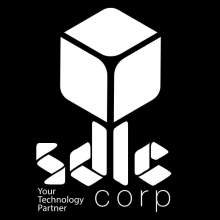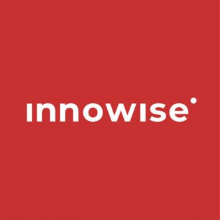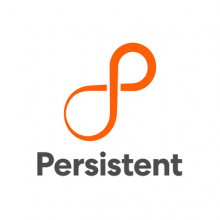
There are 8 Companies in Italy
that provide Go development Services!
In 2025, the IT Services market in Italy is expected to reach $26.22 billion, with the biggest segment being IT Outsourcing, worth $10.53 billion. The country reached the 26th position in the Networked Readiness Index (NRI), an aggregate index that assesses the countries’ overall environment for innovation and ICTs. It also measures their readiness for ICT uptake, the level of usage by companies, society, and the private sector, and the overall level of impact on society and the economy.
Discover Top IT Companies in Italy specialized in Go and other related services. Find the best IT service providers for your projects.
Go, also known as Golang, is an open-source programming language created by Google. It is designed for simplicity, efficiency, and concurrency, making it a versatile choice for building a wide range of applications, from web services to system software.
Handpicked companies • No obligation to hire • 100% risk-free
Featured Companies in Italy
This month, the following Go development companies managed to provide an outstanding service and support. It's worth taking a look.
Fire Bee Techno Services is an ISO-Certified Blockchain and AI Development Company In india and across the world with 13+ years of experience.
Explore Top Go development Companies in Italy
UX design studio that builds precise, intuitive interfaces for complex systems—where usability meets high-stakes innovation.
Services:
A fast-growing IT and business solutions company, empowering global businesses with cutting-edge technology and digital innovation.
Services:
Filter Go development Companies in Italy by Cities
Find the right tech company near you or from a specific city. Some of the best companies might be located in smaller cities.
Find more Go development companies around the world
TechBehemoths is the world's most advanced and user-friendly platform to match IT Companies with real clients without hustle.
The Italian ICT Industry: Data, Companies and Predictions
Data from the Global Information Technology Report 2019 shows that Italy is one of the countries that improved the most during 2019 in its ability to leverage information and communication technologies to improve its competitiveness and the well-being of its population. In 2025, the IT Services market in Italy is expected to reach $26.22 billion, with the biggest segment being IT Outsourcing, worth $10.53 billion.
The country reached the 26th position in the Networked Readiness Index (NRI), an aggregate index that assesses the countries’ overall environment for innovation and ICTs. It also measures their readiness for ICT uptake; the level of usage by companies, society, and the private sector; and the overall level of impact on society and the economy.
Why Should You Work With Italian IT Companies?
Italian IT companies and web agencies are among Europe’s leaders in software development and computing engineering, having a good price/quality ratio which allows them to be competitive on the European ICT market. With more than 132,400 ICT companies registered in 2025 and around 631,500 professionals working within the industry, Italian companies provide innovative solutions for both local and international clients.
What You Should Be Aware of When Working With Italian IT Companies
High demand for IT services and products on the local market creates, in turn, an even higher demand for IT professionals - a luxury resource for Italian IT companies and for the entire industry. This makes Italian IT and web agencies outsource professionals and talents from other, cheaper countries, which, on average, makes the service quality lower than it should be.
Even though Italian companies are encouraged to provide long-term training sessions for underqualified outsourced professionals, this is a costly process that not all companies are willing to undertake.
Are Italian IT And Web Companies Reliable?
In spite of tough conditions and challenges Italian IT companies and the entire industry face, Italy has its own niche of the market that has been loyal for years, and reports from Forbes reveal that the trends will keep the same pace. This business model of moving slowly and getting long-term contracts enables Italian IT companies and web agencies to increase their reputation as trustworthy.
How the Italian IT Industry Relates to the Neighboring Countries
Italy has been the first country in the world to approve a Declaration of Internet Rights through a parliamentary vote: the Italian Bill of Internet Rights was ratified on 28 July 2015 by the Chamber of Deputies and paves the way for digital citizenship. Additional progress has come in the form of the Italian Freedom of Information Act and the modification of the copyright law of 1941, which has been updated to cover telecommunication networks.
The IT industry in Italy is very close to neighboring France and Switzerland, with investment, trade, and partnerships. Italy’s sector is developing with the government’s support for digital optimization. Switzerland offers higher salaries and a business-friendly environment. France, with Switzerland, provides various perks in innovation and market access for Italian IT companies.
What is Go and what are its benefits for your projects?
Go, also known as Golang, is an open-source programming language created by Google. It is designed for simplicity, efficiency, and concurrency, making it a versatile choice for building a wide range of applications, from web services to system software.
More than 363 verified IT companies leverage Go in their development projects. These companies range from startups to tech giants like Google, Uber, and Dropbox. They appreciate Go's speed, reliability, and ease of use for building scalable and performant software.
Go service providers rely on various tools and technologies to enhance their development process. Some commonly used tools include the Go compiler, which transforms Go code into executable binaries, and the Go standard library, which offers essential packages for building applications. In terms of deployment, containerization technologies like Docker are frequently used to package Go applications for consistency and portability.
You may be wondering, how is Go Different from C, Rust, and Java. So, below we’ll try to show you more about the differences that exist between them:
-
Go vs. C: While both Go and C are low-level languages, Go offers modern features like garbage collection and memory safety, which simplify programming. Go is also more concise and expressive than C, making it easier to read and maintain. But if you think your business needs companies that also specialize in C, you can find them on this page
-
Go vs. Rust: Rust emphasizes memory safety and control without sacrificing performance. While Go offers simplicity and readability, Rust provides fine-grained control over memory and is suitable for systems programming with a focus on safety.
-
Go vs. Java: Java is a high-level language often used for building enterprise-level applications. It relies on a virtual machine (JVM) and is known for platform independence. Go, on the other hand, compiles native code, offering better performance and efficiency for certain use cases.
Languages related to Go in terms of use cases and features include Python, Ruby, and Node.js. These languages, like Go, are suitable for building web services and backend applications and are known for their developer-friendly features. If you need these programming languages in addition or instead of Go, just click on their corresponding words above to find verified vendors providing those services.
When selecting IT companies that use Go for your project, consider factors such as the company's experience with Go, their portfolio of past projects, client references, and their understanding of your specific project requirements. Look for companies that align with your project's complexity, scalability needs, and budget.
Go service providers are essential for various project types, including:
-
Web Services: Go is well-suited for building RESTful APIs and microservices due to its excellent performance and simplicity.
-
Networking Applications: Go's concurrency support makes it ideal for developing network-related software such as servers and proxies.
-
Cloud Applications: Go's efficiency and speed are valuable for building cloud-native applications and serverless functions.
-
System Software: Go can be used for developing system utilities, command-line tools, and operating system components.
Go is a versatile language, and its speed, simplicity, and efficient concurrency model make it suitable for a wide range of projects, making it an excellent choice for modern software development.







